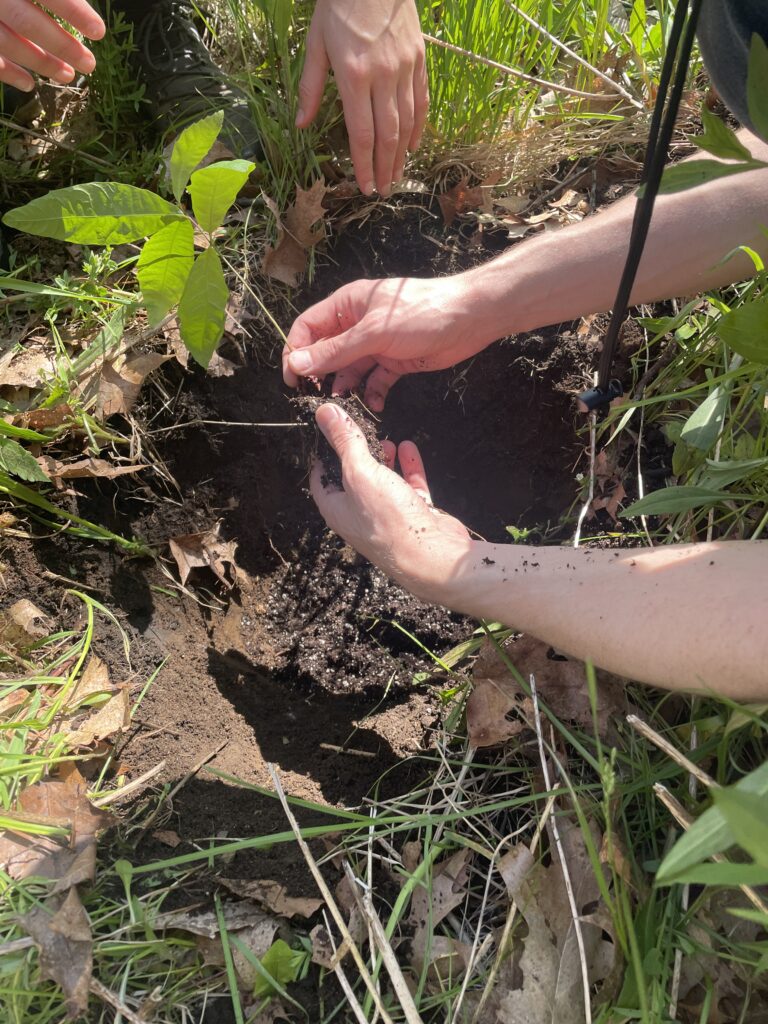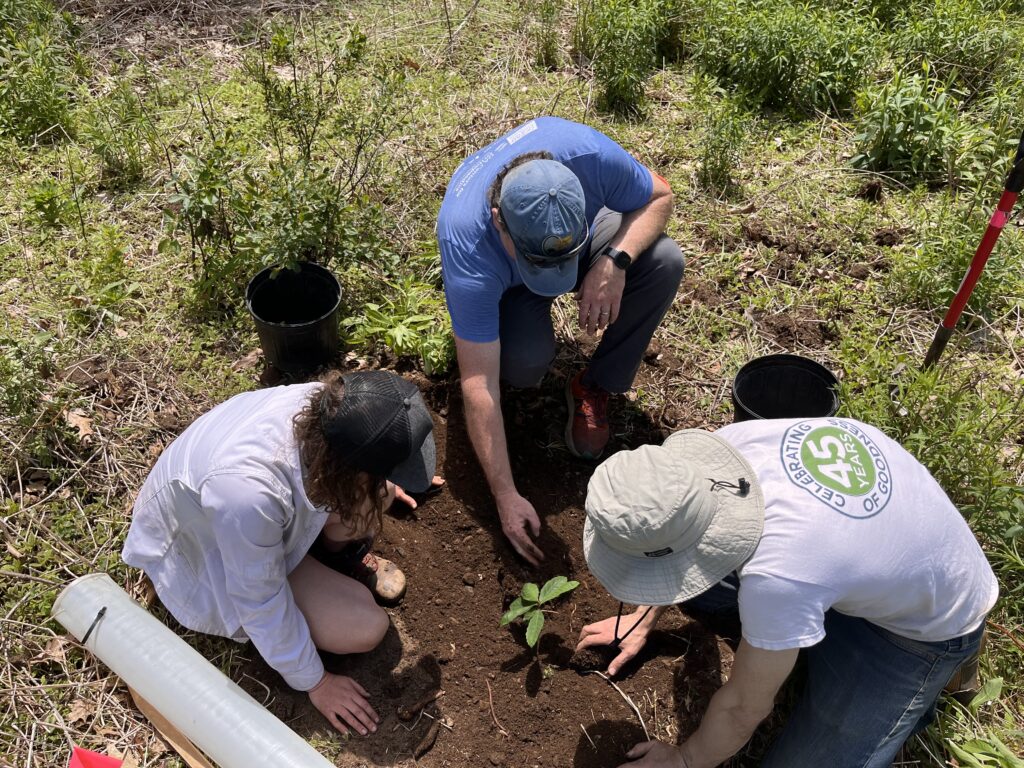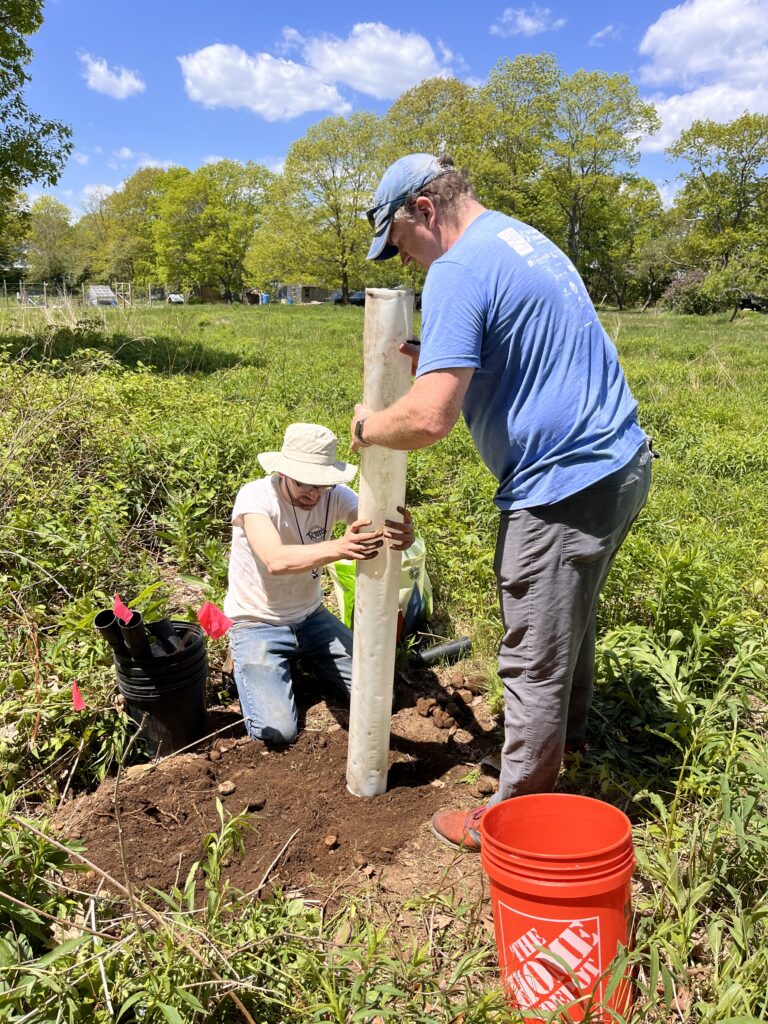An exciting new partnership has sprouted at Turkey Hill Farm. Together with the American Chestnut Foundation – Maine Chapter, CELT has planted 10 American Chestnut saplings as part of a long-term initiative to restore this ecologically and culturally important native tree to Maine forests.
While there are still millions of American chestnut sprouts throughout its native range, the American chestnut is considered to be “functionally extinct” because there are very few mature trees that are flowering and producing nuts. In the late 19th century, the chestnut blight fungus was accidentally imported on plant material. Native chestnut trees had no resistance to the blight, and by 1950 most mature American chestnut trees had disappeared.
Seven of the ten trees planted at Turkey Hill Farm are pure American chestnuts from Maine sources. These trees are “best-by-best” crosses between individuals with naturally high blight resistance. By the time they reach maturity (5-10 years), they will provide important genetic information to cross with hybrid chestnuts that have had blight-resistant genes introduced. Three of the ten trees in CELT’s care are hybrids.
CELT staff and board, Wild Seed Project staff, and ACF volunteer Paul Jessen planted the trees at the end of May. The seedlings are in tubes to protect them from herbivory, and are expected to hopefully grow several feet in the first year.
The goal of the project is to produce American-type chestnuts capable of surviving and reproducing on their own. CELT is excited to embark on this long-term project with ACF and help increase diversity in New England’s forests.



